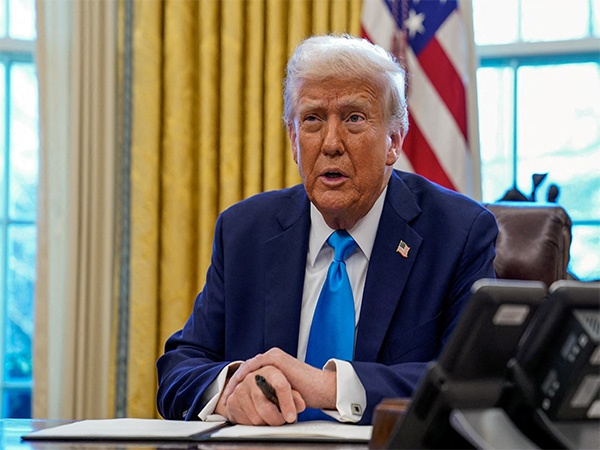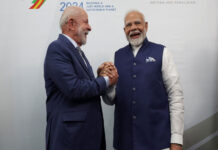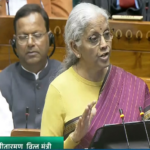As U.S. President Donald Trump calls for imposing 100 percent “secondary tariffs” on Russia should President Vladimir Putin fail to end the war in Ukraine within 50 days, U.S. Senators Lindsey Graham and Richard Blumenthal have cautioned countries, including India, that continuing business with Moscow could invite economic sanctions.
Republican Senator Graham of South Carolina and Democratic Senator Blumenthal are spearheading a bipartisan bill introduced earlier this year, backed by 85 co-sponsors. The legislation seeks sweeping sanctions against Russia and is being framed as a potential “sledgehammer” Trump could use to pressure Putin into ending the conflict.
Senator Blumenthal emphasized the urgency of tougher measures in a post on social media platform X, stating, “We’ll continue to push for Senator Graham & my Russia Sanctions bill with even tougher penalties to deter India, China, Brazil & others from fueling Putin’s war machine. Congressional action sends a powerful message of support.”
In a joint statement, the two senators criticized countries like China, India, and Brazil for supporting Russia’s war economy by purchasing discounted Russian oil and gas, which they argue is helping fund Moscow’s military campaign. They have proposed imposing tariffs as high as 500 percent on nations continuing such trade.
Trump’s announcement of “secondary tariffs” came during his meeting with NATO Secretary General Mark Rutte on Monday. Senator Blumenthal praised the move as a “breakthrough step” and labeled Putin a “thug,” advocating further for the “Sanctioning Russia Act of 2025,” the bill he co-authored with Graham, to impose stricter penalties on nations still engaged in commerce with Russia.
“The President’s announcement is a breakthrough step, committing to both substantial military aid and strong sanctions,” Blumenthal posted on X. “It recognizes the urgency of showing sledgehammer strength—because peace through strength is the only viable strategy with a thug like Putin.”
Graham and Blumenthal’s joint statement further described Trump’s action as a decisive executive measure intended to pressure all parties toward peace negotiations.
“The ultimate hammer to end this war will be tariffs against countries like China, India, and Brazil that sustain Putin’s war machine by buying cheap Russian oil and gas,” the statement read. “President Trump’s decision to implement 100 percent secondary tariffs on those nations, should no peace agreement be reached in 50 days, is a powerful tool to bring them to the negotiating table. The goal isn’t more tariffs—it’s to bring Putin to the peace table.”
They added that they would continue to work with the White House to advance their bipartisan legislation, which includes provisions for tariffs up to 500 percent on countries supporting Russia through energy imports.
During his NATO meeting, Trump stated, “We are very unhappy with Russia. We’re going to be imposing very severe tariffs if there’s no deal in 50 days—tariffs at about 100 percent. You’d call them secondary tariffs. But today, we’re going to talk about something else.”
Earlier this month, India’s External Affairs Minister S. Jaishankar confirmed that India has been engaging with Senator Graham regarding the proposed sanctions bill. He noted that India’s concerns and interests—particularly in energy and security—have been clearly communicated.
Responding to questions about the proposed 500 percent tariffs, Jaishankar said, “Any development in the U.S. Congress that could affect our interests is obviously significant to us. Our embassy and ambassador have been in contact with Senator Graham. We’ve conveyed our concerns. We’ll cross that bridge if and when we come to it.”
















